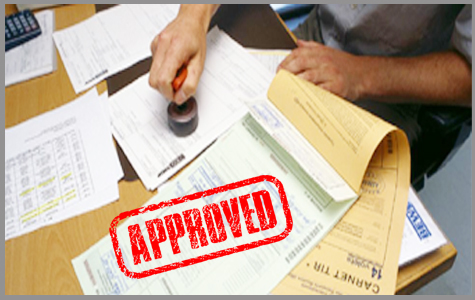Importing Plastics and Plastic Products to the UK: An In-depth Analysis
Plastics and plastic products play a vital role in various industries and sectors, serving as essential components in manufacturing, packaging, construction, and more. The United Kingdom (UK) is a significant consumer of plastics, making it an attractive market for international plastic traders and manufacturers.
In this comprehensive guide, we will explore the process of importing plastics and plastic products to the UK, including market trends, legal considerations, environmental concerns, and the benefits and challenges associated with entering this industry.
The Importance of Plastics in the UK
Plastics are ubiquitous in modern society, providing convenience, durability, and versatility. In the UK, plastics are integral to multiple sectors, including automotive, electronics, healthcare, packaging, and construction. The demand for plastics and plastic products continues to grow, driven by factors such as population growth, urbanization, technological advancements, and evolving consumer needs.
To successfully import plastics and plastic products to the UK, it is crucial to understand the market dynamics and industry trends. Here are key insights:
-
Market Size and Growth: The UK's plastics market is substantial, with a diverse range of products and applications. According to industry reports, the UK plastics market is expected to grow steadily in the coming years, driven by factors such as increased demand for packaging, technological advancements, and the development of sustainable plastic alternatives.
-
Sustainable Plastics: The UK government and consumers are increasingly prioritizing sustainability and environmental responsibility. Importers should consider offering sustainable plastic options, such as biodegradable or recyclable plastics, to align with market demands and regulatory requirements.
-
Recycling and Circular Economy: The UK has implemented initiatives to promote recycling and the circular economy, aiming to reduce plastic waste and increase recycling rates. Importers should be aware of these regulations and ensure compliance with recycling and waste management requirements.
Legal Requirements and Regulations
Importing plastics and plastic products to the UK entails compliance with legal requirements and regulations. Understanding and adhering to these regulations is crucial for a smooth import process. Key considerations include:
-
Product Compliance: Ensure that the plastics and plastic products you import meet relevant UK and European Union (EU) product compliance regulations. This includes adherence to safety standards, labeling requirements, and restrictions on certain chemicals or substances, such as those listed in the EU REACH Regulation.
-
Packaging and Waste Regulations: Familiarize yourself with packaging and waste management regulations, such as the UK Packaging Waste Regulations and Extended Producer Responsibility (EPR) schemes. These regulations impose obligations on importers and manufacturers to manage packaging waste and contribute to recycling efforts.
-
Customs and Import Duties: Importing plastics and plastic products may attract customs duties, taxes, and Value Added Tax (VAT) based on the value and classification of the goods. Consult with customs authorities or a customs broker to determine the applicable rates and procedures.
Selecting reliable suppliers is crucial for the success of your plastic import business. Consider the following factors when choosing plastic suppliers:
-
Quality Assurance: Partner with suppliers who maintain stringent quality control processes and certifications, such as ISO standards or industry-specific certifications. Conduct thorough due diligence and request samples to assess the quality, performance, and durability of the plastics and plastic products.
-
Supplier Reputation and Track Record: Research suppliers extensively by checking their reputation, customer reviews, and track record. Seek recommendations from industry experts, attend trade shows, and establish personal connections to gain insight into their reliability, delivery capabilities, and customer service.
-
Supply Chain Transparency: Transparency in the supply chain is crucial to ensure ethical sourcing, compliance with regulations, and sustainability. Collaborate with suppliers who can provide information about their raw material sourcing, manufacturing processes, and environmental initiatives.
Benefits and Challenges of Importing Plastics and Plastic Products
Importing plastics and plastic products to the UK offers several benefits, but it also comes with challenges:
-
Cost Efficiency: Importing plastics from countries with lower production costs can often result in cost savings. This allows you to offer competitive pricing to UK customers while maintaining quality standards.
-
Product Diversity and Innovation: Importing plastics provides access to a wide range of products, materials, and technologies that may not be readily available in the UK market. This enables you to offer innovative solutions and stay competitive in a rapidly evolving industry.
-
Market Expansion: Entering the UK market allows you to tap into a sizable consumer base and establish partnerships with local businesses. Expanding your market presence can lead to increased sales, brand recognition, and long-term growth opportunities.
-
However, importing plastics and plastic products also present challenges:
-
Environmental Concerns: Plastics are associated with environmental issues, such as plastic waste, pollution, and microplastic contamination. Importers should be mindful of these concerns and actively seek sustainable alternatives or work towards reducing the environmental impact of the products they import.
-
Regulatory Compliance: Keeping up with evolving regulations and standards related to plastics can be complex. Importers must invest time and resources in staying updated with changes in legislation, product restrictions, and recycling requirements.
-
Supply Chain Management: Managing the supply chain for plastic imports involves coordination with multiple stakeholders, including manufacturers, logistics providers, and customs authorities. Efficient logistics processes, clear communication, and contingency plans are essential to ensure timely delivery and minimize disruptions.
-
Embracing Sustainability in Plastic Imports
Given the growing global focus on sustainability, it is crucial for importers of plastics and plastic products to prioritize environmental responsibility. Consider the following strategies:
-
Sustainable Material Choices: Explore alternative materials, such as bio-based or recycled plastics, to reduce reliance on traditional plastics. Promote the use of eco-friendly materials to customers and prioritize suppliers who offer sustainable options.
-
Waste Reduction and Recycling: Support recycling initiatives by implementing waste reduction measures, encouraging recycling among customers, and partnering with organizations that specialize in plastic waste management and recycling.
-
Packaging Optimization: Optimize packaging to minimize waste and ensure it is recyclable or made from recycled materials. Consider lightweight packaging options and explore innovative packaging designs that reduce the environmental footprint.
-
Collaboration and Industry Initiatives: Engage in industry-wide initiatives and collaborate with stakeholders to promote sustainable practices in the plastic supply chain. Participate in sustainability-focused events, share best practices, and contribute to the development of circular economy models.
-
mporting plastics and plastic products to the UK presents opportunities for businesses to meet the growing demand for these materials. By understanding the market trends, legal requirements, and environmental concerns, importers can navigate this complex industry successfully. Prioritizing sustainability, selecting reliable suppliers, and staying updated with regulations will help you build a competitive advantage in the UK market. With a commitment to quality, innovation, and environmental responsibility, importing plastics can lead to long-term growth and contribute to a more sustainable future.
DOCUMENT REQUIREMENTS
- Certificate of Origin
- Bill of Lading
- Packing List
- Commercial Invoice
- Customs Clearance

